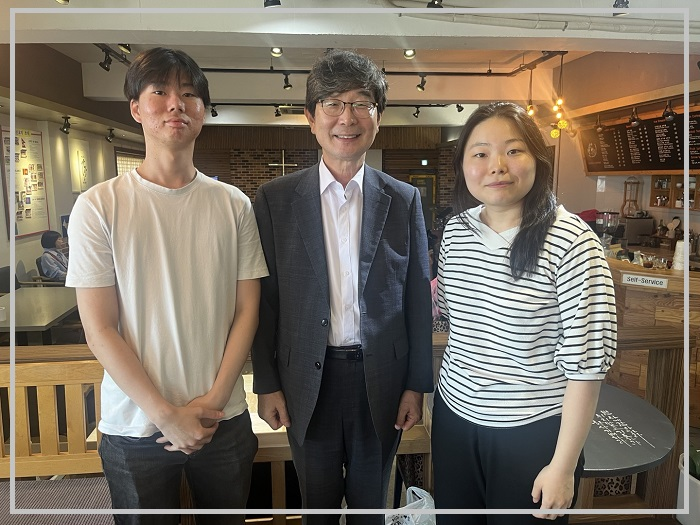
In the heart of the bustling city of Daegu, a new beacon of hope emerged. Pastor Ko Kyung Soo (64), driven by a profound sense of compassion and a calling to serve, founded the Mission Center for Migrants in Daegu back in 2003–a sanctuary dedicated to immigrant laborers seeking solace and support amidst the challenges of living and working in a foreign land.
Nestled in a modest building just a few blocks from the industrial district, the Mission Center for Migrants is more than just a place of worship. It is a community center where the region’s immigrant population can find refuge from the cultural and linguistic barriers that often leave them feeling isolated and vulnerable. Pastor Ko first sought to create a church for homeless people, whom he assumed were the most in need of support and love. However, upon meeting a Filipino worker, he has made it his mission to create a space where they can feel at home. For the last 21 years, Pastor Ko has dedicated his invaluable time and aid to immigrants–often industrial workers–with the various problems they face while living in foreign lands. Visa issues, financial struggles, or even subconscious insecurities for feeling “different,” the church and Pastor Ko support the immigrant families in any way possible.
Pastor Ko, his eyes reflecting a deep empathy stated, “There are many programs in Korea that support disabled people, both financially and socially. However, there is a clear lack of assistance for those from different countries. Even though they possess a type of ‘linguistic and cultural disability,’ we neglect their struggles and do not provide as much support as we should. Especially since the Korean population is shrinking unprecedentedly, immigrant workers will only become more and more essential to our society. So why do we treat them like strangers and not like friendly neighbors?”
The Mission Center for Migrants offers a variety of services aimed at culture exchange. As Pastor Ko stated, culture exchange is not trying to assimilate the foreigners with Korean culture and make them more “Korean.” Instead, it means to share one another’s cultures and traditions to appreciate and learn about the unique differences. Hence, the church holds special events for Chuseok–Korea’s mid-autumn harvest festival day–not only celebrating in the Korean way but also providing the sanctum for other country’s traditional songs and dances. Aside from the special occasions, every Sunday, the church holds a multilingual service that incorporates elements from the diverse cultures represented in the congregation. The service is a vibrant tapestry of languages and traditions, including Vietnamese, Chinese, English, Korean and other tongues, creating a unifying and uplifting experience for all attendees.
The church’s outreach programs extend beyond its walls, with volunteers regularly visiting local factories and construction sites to distribute food, offer prayers, and provide information about the church’s services. This proactive approach ensures that those who may be hesitant or unable to seek help on their own are still reached and supported.
Pastor Ko envisions the members of Mission Center for Migrants to become models for the church and, when they eventually return to their countries, remember the aid provided to them, so that they can treat others the same. He believes that by fostering a sense of community and providing practical support, churches can play a crucial role in integrating immigrant populations and enriching the cultural fabric of their locales.
As the sun sets and the city’s skyline glows with the promise of another day, the Mission Center for Migrants stands as a beacon of light and love. It is a testament to the power of faith, compassion, and community–a sanctuary where immigrant laborers can find the strength to navigate their new lives and the hope to build a brighter future.








